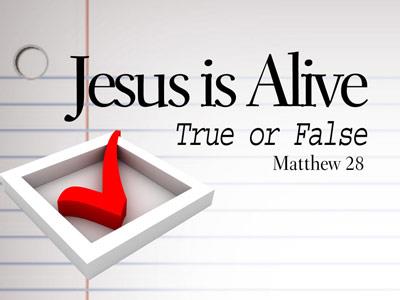-
Apostolic Preaching
Contributed by Michael Stark on Nov 28, 2017 (message contributor)
Summary: How did the message of the Apostles differ from the message of the religions competing with the Christian Faith?
“When [the Sanhedrin] had brought [all the Apostles], they set them before the council. And the high priest questioned them, saying, ‘We strictly charged you not to teach in this name, yet here you have filled Jerusalem with your teaching, and you intend to bring this man’s blood upon us.’ But Peter and the apostles answered, ‘We must obey God rather than men. The God of our fathers raised Jesus, whom you killed by hanging him on a tree. God exalted him at his right hand as Leader and Savoir, to give repentance to Israel and forgiveness of sins. And we are witnesses to these things, and so is the Holy Spirit, whom God has given to those who obey him.’”
The world does not welcome any message that declares personal accountability. This is especially true when the message holds individuals accountable for sinful acts. Though a person may be ever so good in the estimate of his or her peers, to charge that individual with responsibility for the death of the Son of God is seen as a heinous wrong. Since the days of the Apostles, no individual wishes to be charged with deicide. Nevertheless, that was the message delivered by the Apostles to the very men who had clamoured for the crucifixion of Jesus the Messiah. Though it is difficult for modern individuals to accept, it is the message of Easter that is declared to this day.
Too often, we restrict Easter, and the message of Easter, to one day each year. Though Easter is a special day, and though it is a joyous day for Christians, we err when we fail to declare the life of Christ the Lord day-by-day. At the heart of apostolic preaching was the declaration that though the Son of God was crucified, He was raised to life in order to offer forgiveness of sin to all who will accept Him as Master of life.
Apostolic preaching was distinctive in comparison to what was commonly heard among the peoples of that ancient day. I suspect that all else being equal, apostolic preaching would be considered distinctive today when contrasted to much of what is presented from modern pulpits. Join me in exploring apostolic preaching by reviewing the message delivered to the Jewish Council when the Apostles were hailed before them on one occasion.
RELIGION OUTSIDE THE APOSTOLIC FAITH — The model of religion that is demonstrated by the apostolic churches is distinctive from that of the religions that surrounded the people of God. Apostolic faith is dependent upon communicating the message of life in the Risen Son of God. Faith outside that model degenerates into mere form—rite and ritual, cant and creed.
The churches of the New Testament existed primarily to communicate the message of life in the Beloved Son and to build up those who came to faith. It is true that the elements marking a New Testament church include fellowship and worship, but every action of a New Testament congregation is to fulfil the Great Commission given by the Risen Lord. Christians are appointed to be evangelists!
The religions that surrounded the believers in the first century were distinguished primarily by their varied rituals. Likewise, Israel had disintegrated with the passage of time into an ethical religion that was dependent upon precise forms of ritual. One need but recall the manner in which Jesus excoriated the scribes and the Pharisees in order to verify this truth. “The scribes and the Pharisees sit on Moses’ seat, so practice and observe whatever they tell you—but not what they do. For they preach, but do not practice. They tie up heavy burdens, hard to bear, and lay them on people’s shoulders, but they themselves are not willing to move them with their finger. They do all their deeds to be seen by others. For they make their phylacteries broad and their fringes long, and they love the place of honour at feasts and the best seats in the synagogues and greetings in the marketplaces and being called rabbi by others” [MATTHEW 23:2-7].
Of course, this was not the intent of God when He brought His people out of slavery and made them to be a people that He would call His own. Through Moses, God had commanded His people, “Hear, O Israel: The LORD our God, the LORD is one. You shall love the LORD your God with all your heart and with all your soul and with all your might” [DEUTERONOMY 6:4, 5].
Through the Prophet Hosea, God had taught,
“I desire steadfast love and not sacrifice,
the knowledge of God rather than burnt offerings.”
[HOSEA 6:6]
Through Micah, God had iterated this instruction when He said,
“He has told you, O man, what is good;
and what does the LORD require of you

 Sermon Central
Sermon Central



